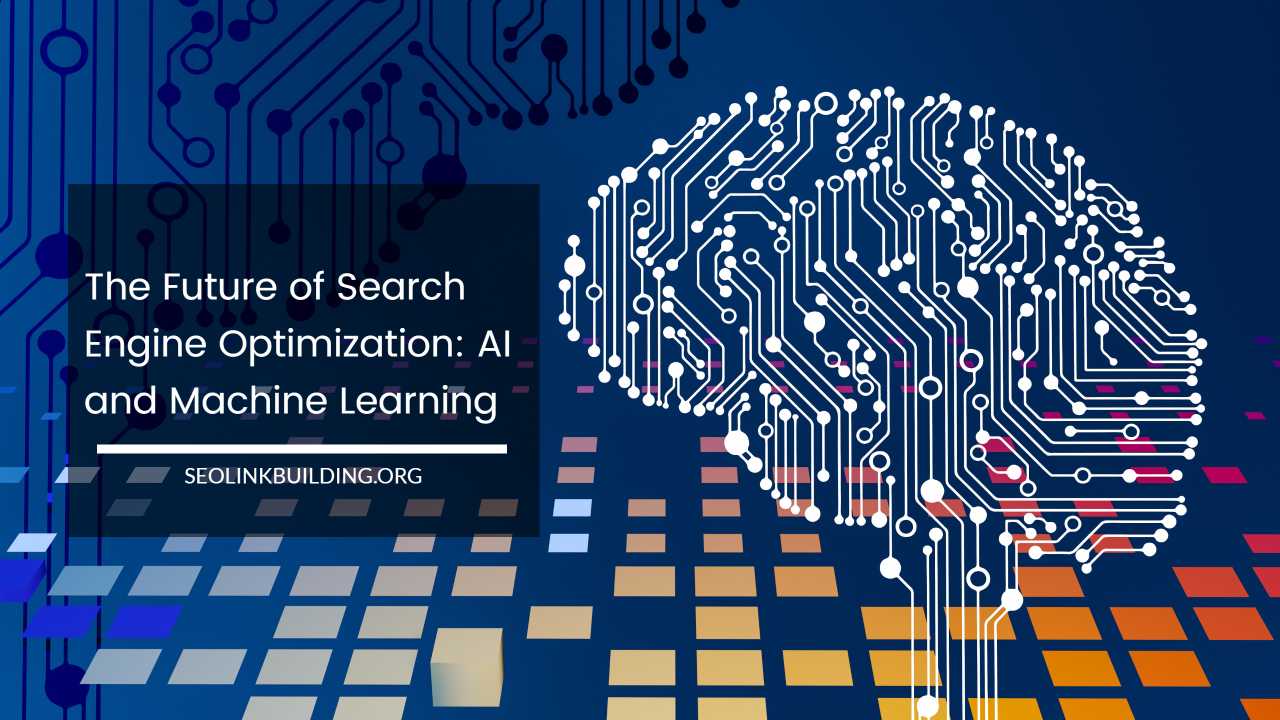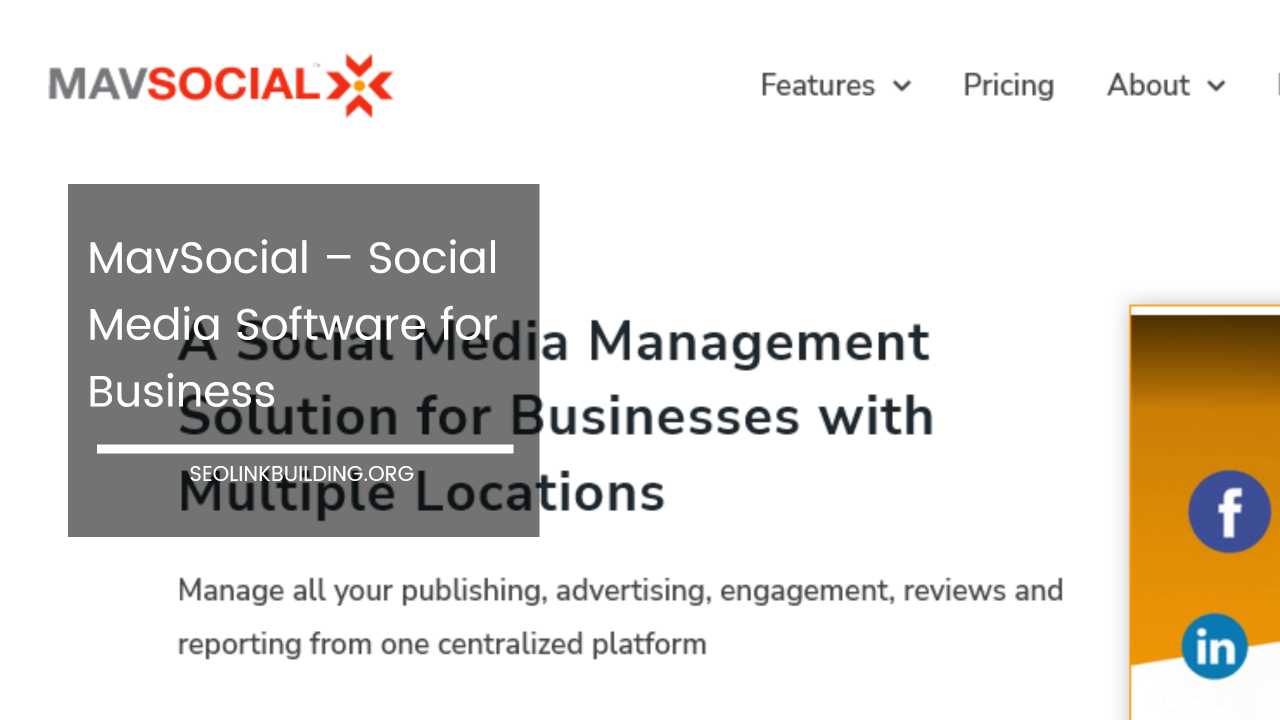The Future of Search Engine Optimization: AI and Machine Learning

Future of Search Engine Optimization
Search Engine Optimization (SEO) has come a long way since the early days of the internet. What started as a simple practice of optimizing web pages for search engines has evolved into a complex and ever-changing field.
In recent years, the integration of artificial intelligence (AI) and machine learning (ML) has revolutionized SEO, offering new possibilities and challenges for businesses and marketers.
In this article, we will explore the future of SEO in the context of AI and ML, examining the current landscape and predicting how these technologies will shape the industry in the coming years.
The Current State of SEO
Before delving into the future, let’s take a moment to understand where SEO stands today. In its essence, SEO is all about improving a website’s visibility in search engine results pages (SERPs).
This involves optimizing various on-page and off-page elements, such as keywords, meta tags, content quality, backlinks, and website speed.
SEO professionals have traditionally relied on data analysis, keyword research, and content optimization to achieve higher rankings on search engines like Google.
Over the years, Google’s algorithm updates, such as Panda, Penguin, and more recently, BERT, have forced SEO experts to adapt their strategies continuously.
Google’s search algorithm has become incredibly sophisticated, emphasizing the importance of delivering high-quality content that meets user intent.
This has shifted the focus from keyword stuffing and link building to creating valuable, user-centric content.
The Role of AI and ML in SEO
As search engines become smarter and user-centric, AI and ML have emerged as powerful tools to enhance SEO strategies. Let’s explore how these technologies are currently influencing SEO and what the future holds.
1. Content Generation and Optimization
AI-powered content generation tools, like GPT-3, have gained popularity in recent years. These tools can automatically generate high-quality, relevant content based on a brief or topic, saving content creators valuable time.
While they are not a replacement for human creativity, they can be a valuable asset for content marketers.
Moreover, ML algorithms can analyze vast amounts of data to identify trends and patterns in user behavior. This data-driven approach helps content creators tailor their content to meet user intent effectively.
For instance, if a particular keyword or topic is trending, AI can help identify it and suggest content ideas to capitalize on the trend.
2. Voice Search Optimization
The rise of voice-activated devices and virtual assistants has changed the way people search for information. AI-driven virtual assistants like Siri, Google Assistant, and Alexa rely on natural language processing (NLP) and machine learning to understand and respond to voice queries.
To optimize for voice search, businesses need to understand how people speak and phrase their queries differently from typed searches.
AI-driven tools can help analyze voice search data to identify common speech patterns and keywords, enabling content creators to create voice-friendly content that aligns with user intent.
3. Personalized Search Results
Search engines are increasingly using AI algorithms to deliver personalized search results. These algorithms take into account a user’s search history, location, and preferences to provide more relevant results.
This means that two users searching for the same query may see different results based on their individual profiles.
For SEO professionals, this means that optimizing for a broader audience may not be enough. Instead, they need to consider how to tailor content and user experiences to individual preferences, which can be challenging but ultimately rewarding in terms of user engagement and conversion rates.
4. Algorithm Updates and Penalties
Google’s algorithm updates can significantly impact a website’s ranking and visibility. ML algorithms are now helping SEO experts predict and adapt to these changes more effectively.
By analyzing past updates and their effects on rankings, AI can provide insights into how to adjust SEO strategies to align with future algorithm changes.
Additionally, AI-powered tools can help identify potential issues that might lead to penalties, such as duplicate content or spammy backlinks. This proactive approach to SEO can prevent sudden drops in rankings and traffic.
5. Structured Data and Schema Markup
Structured data and schema markup provide search engines with additional context about the content on a web page.
AI can assist in automatically adding and optimizing structured data, making it easier for search engines to understand and display content in rich snippets, knowledge panels, and other enhanced search results.
This structured data not only improves the visibility of content but also enhances the user experience by providing more informative search results.
Challenges and Ethical Considerations
While the integration of AI and ML in SEO offers numerous advantages, it also comes with challenges and ethical considerations.
1. Algorithm Bias
AI algorithms are only as good as the data they are trained on. If the data used to train these algorithms contains biases, it can lead to biased search results. Addressing algorithmic bias is crucial to ensure fair and equitable access to information.
2. Privacy Concerns
Personalized search results raise privacy concerns as search engines collect and analyze user data. Striking the right balance between personalized results and user privacy is a challenge that needs to be addressed.
3. Algorithm Dependence
Relying too heavily on AI and ML can make SEO professionals overly dependent on these technologies. It’s essential to maintain a balance and not lose sight of human creativity and intuition.
The Future of SEO: What to Expect
As AI and ML continue to evolve, here are some key trends and developments that we can expect to see in the future of SEO:
1. Real-Time SEO
AI-powered tools will enable real-time SEO monitoring and adjustments. SEO professionals will be able to respond quickly to changes in user behavior, algorithm updates, and competitive landscapes.
2. Hyper-Personalization
Personalized search results and content will become even more sophisticated, with AI understanding user intent on a deeper level. Businesses will need to invest in AI-driven strategies to stay competitive.
3. Voice and Visual Search Domination
Voice and visual search will continue to grow in importance. Optimizing for these search methods will be essential for businesses looking to capture a broader audience.
4. AI-Generated Content Collaboration
AI-generated content will become a collaborator rather than a replacement for human content creators. Content professionals will use AI tools to streamline content creation and focus on strategy and creativity.
5. AI-Powered SEO Auditing
AI will play a significant role in SEO auditing, identifying issues and opportunities more efficiently than manual audits. This will help businesses stay ahead in the ever-competitive SEO landscape.
6. Predictive SEO
AI and ML will be used to predict future search trends and user behavior. This proactive approach will enable businesses to create content and optimize their websites ahead of the curve, gaining a competitive advantage.
7. AI in Local SEO
Local businesses will increasingly leverage AI to improve their local SEO efforts. AI can help optimize local listings, manage reviews, and provide insights into local search trends.
8. AI-Enhanced Competitor Analysis
AI tools will make competitor analysis more comprehensive and accurate. SEO professionals will be able to gain deeper insights into competitor strategies and adapt their own strategies accordingly.
9. AI-Driven SEO Strategy Testing
AI can assist in A/B testing and experimenting with different SEO strategies. This will allow businesses to optimize their approaches based on data-driven insights.
10. AI-Powered SEO Education
AI-driven educational platforms will help SEO professionals and marketers stay updated with the latest trends and best practices. These platforms can offer personalized learning paths and recommendations.
The Ethical and Legal Landscape
As AI and ML become more ingrained in SEO practices, the ethical and legal landscape will also evolve. Here are some considerations for the future:
1. Transparency
Businesses using AI in SEO must be transparent about how AI is used to influence search results and user experiences. Transparency builds trust with users and helps address concerns about bias.
2. Data Privacy
Stricter data privacy regulations may affect how AI collects and uses user data for personalized search results. Businesses will need to navigate these regulations while still delivering tailored experiences.
3. Algorithmic Accountability
As AI algorithms become more sophisticated, accountability for their decisions will be a significant concern. Businesses must be prepared to explain how their AI-driven SEO strategies work and take responsibility for any unintended consequences.
4. Fair Competition
AI can provide significant advantages in SEO, but it must be used responsibly to ensure fair competition in the digital marketplace. Businesses should avoid unethical practices that manipulate search results.
Final Remarks
The future of SEO is undoubtedly intertwined with AI and ML. These technologies have already transformed the way we approach SEO, making it more data-driven, personalized, and efficient.
As AI and ML continue to advance, SEO professionals and businesses that embrace these technologies will be better equipped to adapt to the ever-changing digital landscape and gain a competitive edge in the search engine rankings.
However, it’s essential to navigate the ethical and privacy considerations and strike a balance between automation and human creativity in the pursuit of SEO success in the AI era.
The future of SEO is exciting, challenging, and full of opportunities for those willing to embrace AI and ML as integral components of their strategies.













